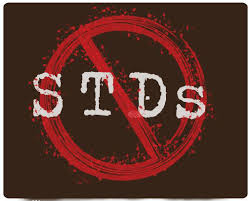What is a Sexually Transmitted Disease?
 A sexually transmitted disease is sometimes known as venereal disease. It is an infection that you get from sexual contact with a person who has a sexually transmitted infection. Sexually transmitted diseases affect over 110 million men and women in the United States. There are over 20 different types of infectious organisms that can be transmitted through sexual contact, including bacteria and viruses. These diseases can sometimes result in mild symptoms, and may be fairly harmless, but some sexually transmitted diseases result in irritation, pain, genital discharges, sterility, and even death. HIV is one example of a sexually transmitted disease.
A sexually transmitted disease is sometimes known as venereal disease. It is an infection that you get from sexual contact with a person who has a sexually transmitted infection. Sexually transmitted diseases affect over 110 million men and women in the United States. There are over 20 different types of infectious organisms that can be transmitted through sexual contact, including bacteria and viruses. These diseases can sometimes result in mild symptoms, and may be fairly harmless, but some sexually transmitted diseases result in irritation, pain, genital discharges, sterility, and even death. HIV is one example of a sexually transmitted disease.
How Are Sexually Transmitted Diseases Spread?
A sexually transmitted disease is spread through the exchange of body fluid during sexual activity, which may include vaginal, oral, or anal sex. Sometimes, the organisms that cause sexually transmitted diseases are spread through contact with blood from an infected person, which happens sometimes with needle sticks or even from mother to child during pregnancy or delivery. Sexually transmitted diseases are not spread by casual contact that does not involve body fluid transfer, like shaking hands. You will not get a sexually transmitted disease from touching an object like a toilet seat.
Symptoms of Sexually Transmitted Diseases
People can be infected with a sexually transmitted disease and may have no symptoms, but in many cases, one or more of the following symptoms can indicate that a person has contracted a sexually transmitted disease:
· Vaginal or penile discharge or odor
· Pelvic pain
· Groin pain
· Burning or itching in the genital area
· Vaginal pain during intercourse
· Burning or pain during urination or during a bowel movement
· Increased urinary frequency
· Sores, blisters, or masses in the genital region, the rectum, or the mouth.
What Are Common Causes of Sexually Transmitted Disease?
Some of the most common infections that are transmitted through sexual contact include gonorrhea and chlamydia. Chlamydia doesn’t produce significant symptoms in many people, but can result in scarring and sterility. Both gonorrhea and chlamydia are treated with antibiotics. Trichomoniasis is a common bacterial disease that usually occurs in young women who are sexually active. This disease causes a discharge and pelvic pain, but can be treated with antibiotics.
 Syphilis is a dangerous sexually transmitted disease that usually occurs with a painless sore around the penis, vagina, or on the mouth, hands, and anus. If syphilis is not treated, it can result in serious complications, including brain disease. Syphilis is usually treated with penicillin.
Syphilis is a dangerous sexually transmitted disease that usually occurs with a painless sore around the penis, vagina, or on the mouth, hands, and anus. If syphilis is not treated, it can result in serious complications, including brain disease. Syphilis is usually treated with penicillin.
Genital herpes is a sexually transmitted disease that spreads by skin-to-skin contact with an infected sore. One strain of the virus that causes herpes causes blisters or sores on the lips, and although it is not always spread by sexual contact, it can result from oral sex with an infected person.
Human Immunodeficiency Virus (HIV) is a viral infection that causes AIDS. It is usually transmitted sexually, but can be transmitted through the blood, needle sticks, sharing needles, or from an infected mother to her newborn during pregnancy, delivery, or when nursing. People who are infected with HIV may not experience significant symptoms at first, and may only have a brief flu-like illness, which resolves in one to four weeks, but the virus will reactivate and cause destruction of the immune system. Although there is no cure for HIV infection, people who have been infected can remain healthy by taking antiviral medication.
Hepatitis B is a virus that can result in fatal liver disease, and it is frequently transmitted by blood, as well as through sexual contact. Genital warts are caused by another virus.
If you have a sexually transmitted disease, it is important to seek treatment to prevent further complications and even death. You should call a top New York urology doctor for diagnosis and treatment. Safe sex will help prevent the spread of sexually transmitted diseases, but if you are infected, call Drs. Brodherson and Larish, top New York urologists, today. 212-675-3186. Our staff will help you schedule a convenient appointment.
